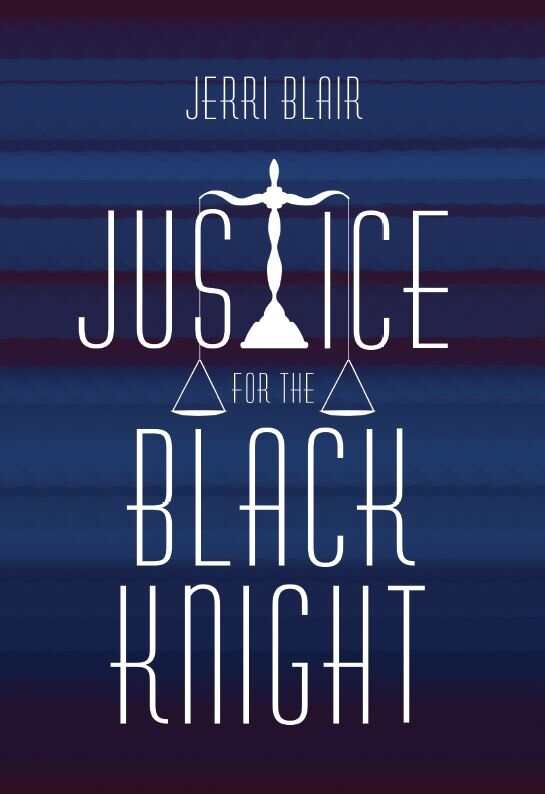It looks like you've stumbled upon a page meant to be read by our code instead of viewed directly. You're probably looking for this page.

Justice for the Black Knight
This earnest book has the feel of a true-crime mystery, coming-of-age novel, and high-stakes courtroom drama rolled into one.
Rarely are themes of honor, justice, and chivalry taken up with the solemnity Jerri Blair brings to the legal procedural genre in Justice for the Black Knight. In a story running through nearly a century of American prejudice, Blair’s characters traverse peaks and valleys of right and wrong, experiencing shock waves of violence and discovering the powers of fear and courage. A touch sentimental, and certainly written from a generous Christian perspective on democracy and faith in the natural goodness of humanity, Justice for the Black Knight is a compelling and earnest tale.
Heroes, self-empowered damsels (nonetheless in distress), and monsters are cast in this twentieth-century law-and-order fable. At the center of the legend is a man whose dreams always surpassed the limits imposed against him as a black American. Young, bright, and full of promise at fifteen, Freddie Edwards makes a suitable neighborhood champion for ten-year-old newcomer Annie Robinson and Freddie’s sister of the same age, Ruby. Instant friends, these young girls draw Freddie out from a protective shell and encourage him, with the aid of Annie’s angelic mother, to pursue valor.
In the summer of 1935, the ultimate villain is discovered residing down the block—a twisted and predatory loner whose manipulations of class and racial violence both amplify and conceal his crimes. In Blair’s telling, this clash of good versus evil sets off a chain of injustice that eventually threatens to send Freddie to the electric chair.
As in any account of racial conflict, the representations of characters can be accused of being variously stereotypical or apologetic. Attempting to drive home the central point that people should be judged by their actions and not their social positions, the backstory for nearly every cast member is included. These at times lengthy vignettes flesh out motives and flaws that could have been more artfully revealed through action and dialogue. Although Freddie Edwards is the titular hero, the book is ultimately a celebration of numerous white characters who turned against both oblique and invisible racism to expose and seek amendments to a prejudicial society.
While the narrative predominantly favors Annie’s experience of events, it is told with the distance of history and drops frequent reminders that the impact of each action will resonate for years. Like many fables, it is grandiose (Freddie is credited with having received direct praise from Martin Luther King Jr., for example) and idealistic, with a moral lesson. With the feel of a true-crime mystery, coming-of-age novel, and high-stakes courtroom drama rolled into one, Justice for the Black Knight will especially appeal to readers that appreciate a strong female protagonist and a keep-you-guessing plot.
Reviewed by
Patty Comeau
Disclosure: This article is not an endorsement, but a review. The publisher of this book provided free copies of the book and paid a small fee to have their book reviewed by a professional reviewer. Foreword Reviews and Clarion Reviews make no guarantee that the publisher will receive a positive review. Foreword Magazine, Inc. is disclosing this in accordance with the Federal Trade Commission’s 16 CFR, Part 255.